-
Hippocrates: Father of Medicine
Connie Jankowski
Library Binding (Compass Point Books, July 1, 2009)Hippocrates is known as the father of medicine. He separated religion from medicine and tried to find scientific reasons for why people became ill. By observing a patient’s symptoms he was often able to diagnose illnesses and find cures. He encouraged his patients to take care of their bodies and urged fellow doctors to practice good hygiene and have a positive bedside manner. He founded a medical school in Greece to share his knowledge of medicine and philosophy. His code of ethics became known as the Hippocratic Oath. For more information, read The Human Body, another book in the Mission: Science series.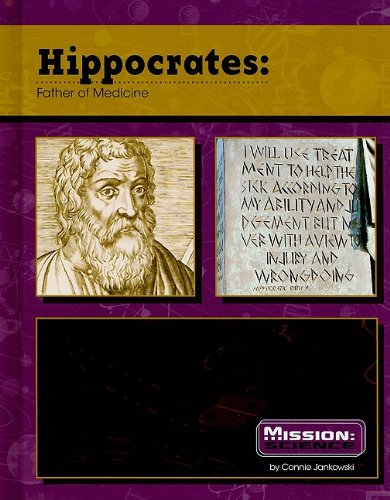 W
W
-
Louis Pasteur: Founder of Microbiology
Lisa Zamosky
Library Binding (Compass Point Books, Sept. 1, 2008)French scientist Louis Pasteur, often called the founder of modern medicine, has been credited with many discoveries. One of the most important was the discovery in the 1800s that tiny organisms called germs spread disease. His scientific work helped save millions of lives. For more information on germs and other simple organisms, read Investigating Simple Organisms, another book in the Mission: Science series. V
V
-
Mission to Mars
Eve Hartman, Wendy Meshbesher
Paperback (Raintree, Jan. 1, 2011)Will human beings ever explore Mars? Can it be colonized? Find out in this fascinating book on Martian exploration. W
W
-
Mapping Earth from Space
Robert Snedden
Library Binding (Raintree, Jan. 1, 2011)Satellites can now map 99 percent of the Earth's surface. What can scientists learn from these images? Find out in this fascinating book. W
W
-
Robert Fulton: Engineer of the Steamboat
Don Herweck
Library Binding (Compass Point Books, Sept. 1, 2008)Herweck, Don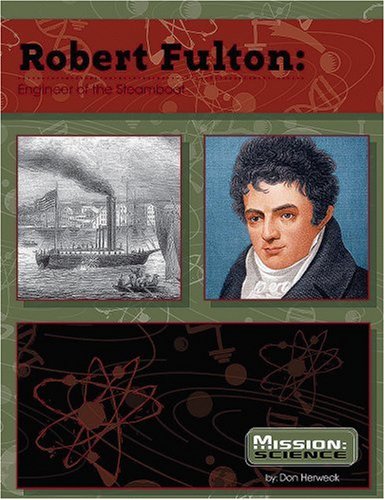 W
W
-
Searching for Arctic Oil
Eve Hartman, Wendy Meshbesher
Paperback (Raintree, Jan. 1, 2011)There is oil under the ice in the Arctic, but how much? How would getting it affect this protected ecosystem? Find out in this fascinating book. W
W
-
Rachel Carson: Renowned Marine Biologist and Environmentalist
Gina Dal Fuoco
Library Binding (Compass Point Books, Jan. 1, 2009)Marine biologist Rachel Carson studied the use of chemical pesticides and their impact on ocean life. She was particularly concerned about DDT, and she wrote about it in her most famous book, Silent Spring. The public conversation that resulted from its publication in 1958 helped lead to restrictions on the use of pesticides in many parts of the world. For more information on protecting the environment, read Earth, another book in the Mission: Science series.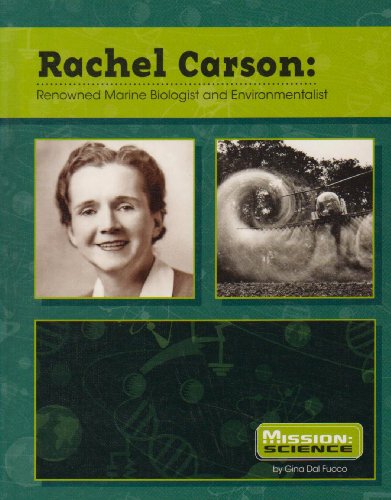 U
U
-
Thomas Edison and the Developers of Electromagnetism
Elizabeth R Cregan
Library Binding (Compass Point Books, July 1, 2009)Thomas Edison was called a wizard, which was a good nickname for one of history’s most famous inventors and the holder of more than 1,000 patents. Often improving upon the ideas of others, Edison and his assistants perfected the incandescent lightbulb, and created the first successful electrical power system, the alkaline battery, and the phonograph, which played recorded sound. Edison’s modern industrial research laboratory was one of the first, and he helped to start the motion picture industry. For more information, read Electromagnetism, another book in the Mission: Science series.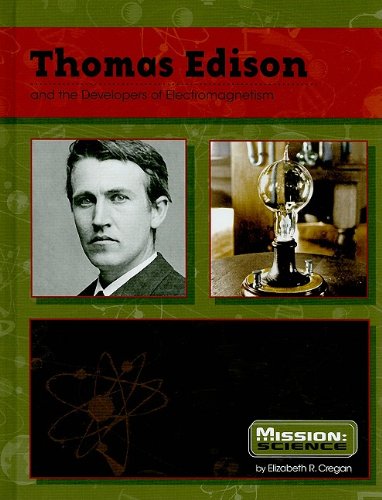 U
U
-
Jane Goodall: Primatologist and Animal Activist
Connie Jankowski
Library Binding (Compass Point Books, Jan. 1, 2009)Jankowski, Connie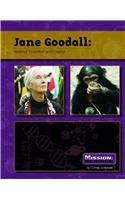 U
U
-
George Washington Carver: Agriculture Pioneer
Stephanie Macceca, Robin S. Doak
Library Binding (Compass Point Books, Jan. 1, 2010)Born into slavery, George Washington Carver worked hard, earned a university graduate degree, and eventually became a world-famous expert on plants. By experimenting with peanuts and other plants, he learned how to make many useful products from them. Carver taught students and farmers how to grow plants without damaging the soil. For more information on plants, read The World of Plants, another book in the Mission: Science series. U
U
-
Cloning Pets
Sean Price
Library Binding (Raintree, Jan. 1, 2011)Will we ever be able to clone our pets? Would that be a good thing? Explore these topics in this fascinating book.
-
Isaac Newton: Groundbreaking Physicist and Mathematician
Jane Weir
Library Binding (Compass Point Books, July 1, 2009)One of the greatest thinkers of all time, Isaac Newton gave the world an accurate understanding of forces and motion throughout the universe. He went to college but learned much about science on his own, by observing, experimenting, and thinking carefully. Newtons laws of motion explain, in a few sentences, how and why things move, or dont move, when forces act on them. He also studied and described gravity and the makeup of light, and he created a kind of math known today as calculus. For more information, read Forces and Motion, another book in the Mission Science series. X
X